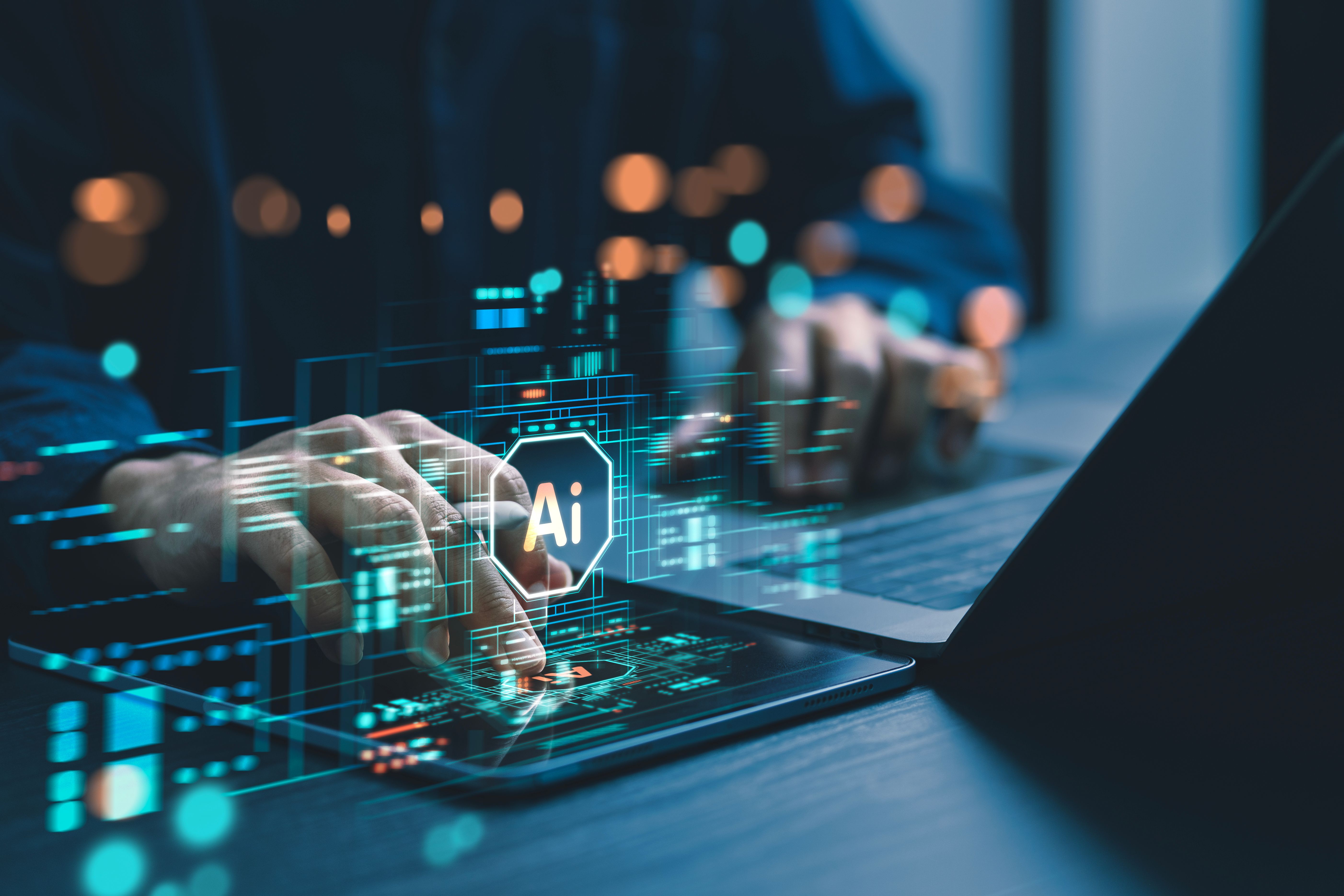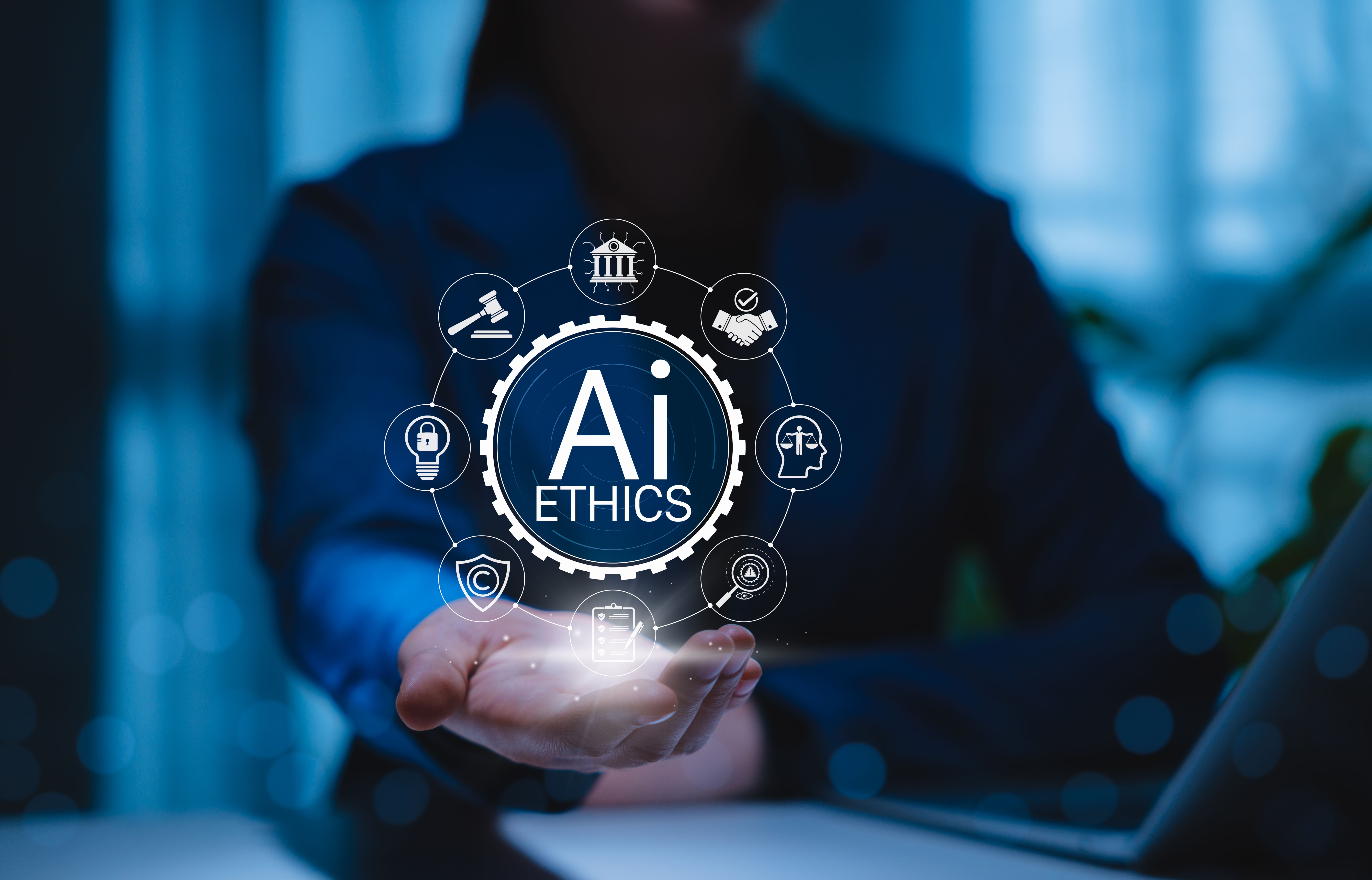Harnessing AI: Embracing Technology as a Tool for Progress
JT
Understanding the Role of AI in Today's World
Artificial Intelligence (AI) has transformed from a futuristic concept to an integral part of our daily lives. From virtual assistants that help manage our schedules to complex algorithms that drive business decisions, AI is increasingly becoming a vital tool for progress. As we embrace this technology, it is essential to understand its role and potential impact on various sectors.
AI technologies are not just limited to tech giants or scientific research; they are permeating industries such as healthcare, finance, and education. This widespread adoption signifies the potential of AI to revolutionize conventional practices and improve efficiency and accuracy.

The Benefits of Integrating AI
One of the most significant advantages of AI is its ability to process and analyze large volumes of data quickly. This capability allows businesses to gain insights and make informed decisions at a pace previously unimaginable. Additionally, AI can help automate routine tasks, freeing up human resources for more strategic activities.
In healthcare, for instance, AI is being used to improve diagnostics and personalize treatment plans. In finance, it enhances fraud detection and risk management. By leveraging the strengths of AI, organizations can stay competitive and adapt to the ever-changing market landscape.

Challenges and Considerations
While the benefits of AI are substantial, there are challenges that need to be addressed. One major concern is the ethical implications of AI, including privacy issues and potential biases in AI algorithms. Ensuring that AI systems are transparent and fair is crucial to gaining public trust.
Moreover, as AI replaces certain tasks traditionally performed by humans, there is a growing need for workforce reskilling. Embracing technology should also mean preparing for the shifts it brings in employment patterns and ensuring that workers are equipped with skills for new roles.

AI as a Catalyst for Innovation
AI is not just about automation; it is a powerful catalyst for innovation. It empowers startups and established companies alike to experiment with new ideas and bring innovative products to market. AI-driven innovation can lead to groundbreaking solutions that address global challenges such as climate change and resource management.
By fostering a culture of innovation supported by AI, businesses can enhance their agility and responsiveness to consumer demands. This approach not only drives growth but also contributes positively to society by solving pressing issues.
The Future of AI Integration
Looking ahead, the integration of AI into various aspects of life will continue to deepen. Emerging technologies such as the Internet of Things (IoT) and blockchain are expected to further augment AI's capabilities, creating even more opportunities for innovation.
As we harness AI's potential, it is vital to maintain a balance between technological advancement and ethical responsibility. By doing so, we can ensure that AI serves as a tool for progress that benefits everyone.

Conclusion: Embracing the AI Revolution
AI is not just a trend; it is a transformative force reshaping the world. Embracing this technology requires openness to change and a commitment to addressing its challenges responsibly. As we continue to integrate AI into various facets of society, we must remain vigilant in ensuring that it acts as a force for good.
The journey toward harnessing AI's full potential is just beginning. By working together, businesses, governments, and individuals, we can create a future where technology enhances human capabilities and drives sustainable progress.
